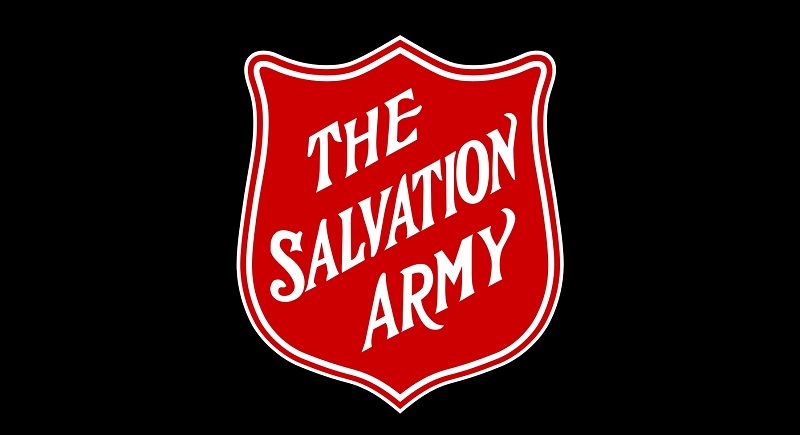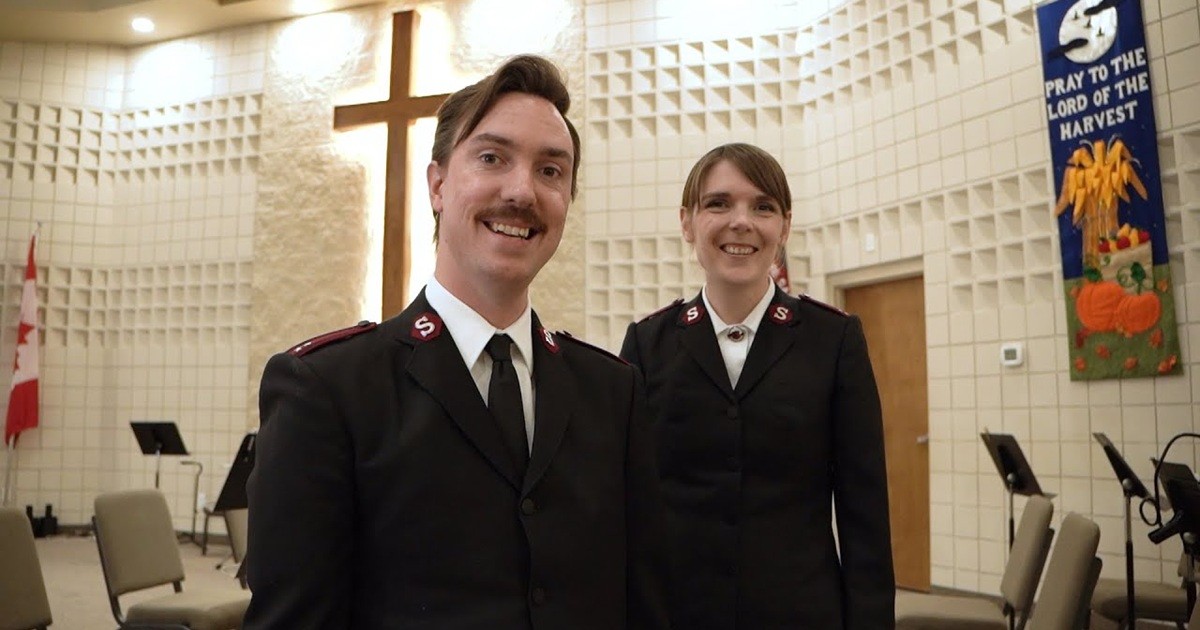Salvationists and Friends,
I write to share with you a commitment the Canada and Bermuda Territory has made regarding “conversion” therapy, also known as “reparative” therapy.
We recognize there are diverse views within the broader Christian church and within our own movement regarding sexual orientation and gender identity. At the same time, we feel compelled to comment internally and externally about a set of practices that have been widely discredited and are known to cause harm.
While there are various definitions of conversion therapy in the medical, mental-health and social-work professions, as well as in law, at its most basic, conversion or reparative therapy is an attempt to change a person’s sexual orientation to heterosexual or gender identity to cisgender. It is rooted in the notion that there is something inherently wrong about certain sexual orientations or gender identities, and that same-sex attraction or a transgender identity needs repair.
Issuing this statement does not mean we are changing Salvation Army doctrine or teaching. The Salvation Army has long maintained that same-sex attraction is not morally blameworthy.
The New Zealand Territory has produced a set of guidelines for Salvationists on this topic. We share their desire that The Salvation Army should not cause harm to people who identify as LGBTQ2+. This commitment is consistent with International Headquarters’ statement that we stand against homophobia, which victimizes people and can reinforce feelings of alienation, loneliness and despair. Conversion therapies have been widely demonstrated to cause such feelings, among other harms.
The federal government recently introduced Bill C-6, An Act to amend the Criminal Code (conversion therapy) into the House of Commons to prohibit the practice of conversion therapy in Canada. This legislation aims to support LGBTQ2+ persons and stop a set of practices that have caused much harm in Canada and elsewhere.
In the Canada and Bermuda Territory, we have a long history of serving our own church members and the broader community. We commit to live out our Christian faith and core values, in a way that gives hope, respects the dignity of every person who comes through our doors, and serves without discrimination.
We, therefore, have confirmed support for the legislation in its intent to ban the use of conversion therapy and commit to the following practical responses:
- To acknowledge that conversion therapies within and outside the Christian church have been both ineffective and harmful.
- To acknowledge that members of our own church community identify as LGBTQ2+ persons.
- To aim to be a church community where LGBTQ2+ persons find encouragement to develop their relationships with God.
- To not act, directly or indirectly, to encourage, refer to or engage with any form of conversion or reparative therapies or practices.
- To not discriminate against anyone on the grounds of sexual orientation or gender identity in our community-based services or workplaces. This includes attempts to change or deny a person’s sexual orientation or gender identity.
- To continue to demonstrate sensitivity to the complex social, emotional and spiritual needs of all people, and live out our core values of Service (we reach out to support others without discrimination), Dignity (we respect and value each other, recognizing everyone’s worth) and Hope (we give hope through the power of the gospel of Jesus Christ).
- To commit to deepening our understanding of the unique needs and experiences of LGBTQ2+ persons so that we may support them effectively, and with respect.
There may be a need, or desire, to reflect on these remarks. I invite you to write and communicate with me directly as we consider together the direction The Salvation Army will take in the years to come.
Sincerely in Christ,
Commissioner Floyd Tidd
Territorial Commander
Territorial Statement Regarding Conversion Therapy
The Context
The Government of Canada recently introduced Bill C-6, An Act to amend the Criminal Code (conversion therapy) in the House of Commons. If and when passed, the Bill would prohibit several activities related to conversion therapy, defined as “a set of practices designed to change a person’s sexual orientation to heterosexual, to repress or reduce non-heterosexual attraction or sexual behaviours, or to change gender identity to cisgender” (a person’s gender identity matches the sex they were assigned at birth).
According to the Library of Parliament, conversion therapy has its roots in the 19th century, a time when same-sex sexual activity was a crime and homosexuality was understood as a mental illness. Psychiatrists offered a range of interventions designed to change a person’s sexual orientation, which included addressing family dynamics, aversion techniques (electric shock treatments and induced nausea and vomiting), behavioural interventions (dating skills, assertiveness and affection towards the opposite sex) and cognitive interventions (reframing of thoughts and desires). In addition, ex-gay ministries, most notably Exodus International, developed in the 1970s in an effort to help people reconcile their same-sex attraction with their conservative religious beliefs.
A growing body of research has shown that a person cannot change their sexual orientation at will, and practices aimed at changing a person’s sexual orientation or gender identity, whether offered by licensed medical or mental-health professionals, or by faith-based organizations, have been shown to be both ineffective and harmful to those exposed to conversion therapy. Distress, anxiety, depression, negative self-image, a feeling of personal failure, difficulty sustaining relationships, and sexual dysfunction are among the negative effects of conversion therapy.
In recent years, the Canadian Psychiatric Association (2014), Canadian Psychological Association (2015) and Canadian Association of Social Workers (2018) have adopted statements or policies opposing the practice. The Canadian Psychiatric Association has recognized its own history of conflating LGBTQ2+ identities with mental illness and its contribution to the stigma and discrimination faced by people who identify as LGBTQ2+. Likewise, some former ex-gay ministries have done the same.
In its Code of Ethics and Professional Conduct, the Canadian Association for Spiritual Care commits its members to “affirm the dignity and value of each individual,” and to “respect the diversity of cultural, ethnic, gender, racial, sexual-orientation, spiritual, religious, and disability experiences that people have and strive to eliminate discrimination.”
Our Perspective
While some have expressed concern about the impact of the Bill on freedom of religion and freedom of expression, and recommended amendments to it, The Salvation Army Canada and Bermuda Territory has chosen not to comment on the finer points of the legislation.
Instead, recognizing that our Territorial Mission Statement is to share the love of Jesus Christ, meet human need and be a transforming influence in the communities of our world, we acknowledge the emotional, psychological, social and spiritual harms efforts to change a person’s sexual orientation or gender identity have caused and we have opted to issue this statement, confirming our unequivocal opposition to their use. The fundamental issue is not one of sexuality, but of a practice that is both ineffective with regard to its purported aims, and that does significant harm.
Further, as confirmed by International Headquarters, we stand against homophobia, which victimizes people and can reinforce feelings of alienation, loneliness and despair. Salvation Army teaching is not that same-sex attraction is morally wrong or that people who experience same-sex attraction should become heterosexual.
Finally, in our effort to live out our core values of Hope, Service, Dignity and Stewardship, we reaffirm our commitment to serve all who come to us in need - whether the need be spiritual, emotional or physical - without discrimination. Our love for God, and the love of God abiding within us (1 John 4:16), drives us to reach out to one another to provide care, meet human need, be a transforming influence in our communities. God’s love is not conditional, and neither is our commitment to serve.
Believers are called to be like God and therefore to be living examples of his love in action. Christians are told to “accept one another… just as Christ accepted [them]” (Romans 15:7a), and to be “sympathetic, love one another, [and] be compassionate and humble” in their dealings (1 Peter 3:8). They are instructed to clothe themselves “with compassion, kindness, humility, gentleness and patience… And over all these virtues put on love, which binds them all together in perfect unity” (Colossians 3:2,14).
As the love of God “is to be known by its fruit” (Galatians 5:22), any action that causes harm to a person fails the test of love. The damage of conversion therapy cannot be justified in the light of an orientation of love.
Therefore, knowingly approving of conversion therapy, which is known to bring harm, is not consistent with the love that God expects of believers.
Our Response
- We acknowledge the harm caused by conversion therapies, and that practices within the Christian church aimed at changing a person’s sexual orientation have been both ineffective and harmful.
- We acknowledge that there are members of The Salvation Army who identify as LGBTQ2+ persons, some of whom have been hurt by and within The Salvation Army.
- We aim to be a church community where LGBTQ2+ persons find encouragement to develop their relationships with God.
- We will not act, directly or indirectly, to encourage, refer to, or engage with any form of conversion therapies or practices aimed at changing a person’s sexual orientation or gender identity. We will provide pastoral support, in the form of person-centred care, which helps people explore their authentic identity, without praying for a specific outcome in terms of their sexual orientation or gender identity.
- In our community-based services and workplaces, we will not discriminate against anyone on the grounds of sexual orientation or gender identity. This includes attempts to change or deny a person’s sexual orientation or gender identity.
- We will continue to demonstrate sensitivity to the complex social, emotional and spiritual needs of all people, and live out our core values of Service (we reach out to support others without discrimination), Dignity (we respect and value each other, recognizing everyone’s worth) and Hope (we give hope through the power of the gospel of Jesus Christ).
- We commit to deepening our understanding of the unique needs and experiences of LGBTQ2+ persons so that we may support them effectively, and with dignity.
You can download a PDF of the statement here: Territorial Statement Regarding Conversion Therapy.










Can practicing LGBTQ people become members of the Salvation Army Church - counsel others, teach, guide and hold positions of leadership in the church?